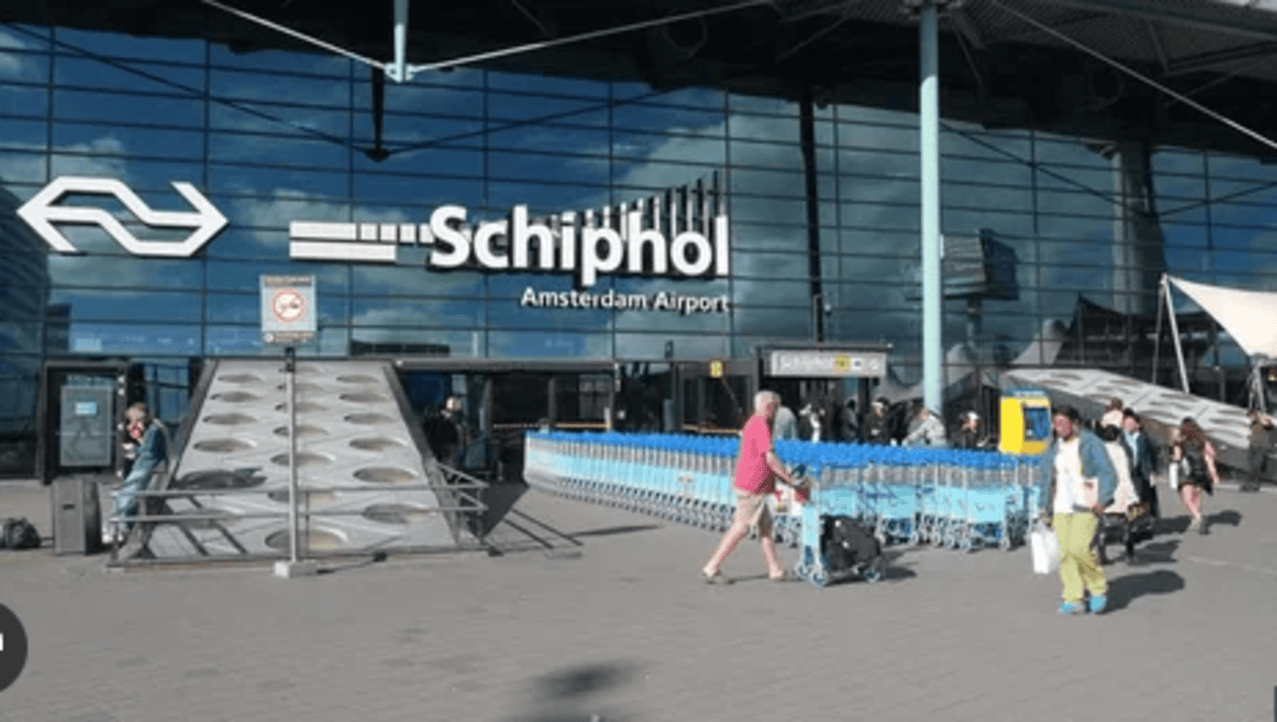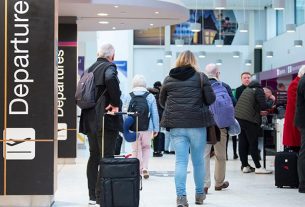In a fierce response to a major price hike, Dutch airline KLM has condemned Amsterdam’s Schiphol Airport for its decision to increase airport fees by a staggering 41% starting in 2025. The airline, which is one of the largest operators at Schiphol, expressed strong dissatisfaction with the fee increase, arguing that it would place undue financial strain on both the airline and passengers, as well as harm the broader Dutch aviation sector.
The Fee Hike: What’s Behind the Decision?
Schiphol Airport, one of Europe’s busiest and most iconic hubs, announced the fee hike in an effort to cover the rising costs associated with infrastructure upgrades, security measures, and sustainability initiatives. The airport is facing financial pressure as it works to modernize its facilities and meet new environmental targets, including reducing carbon emissions and enhancing passenger experience.
However, the 41% increase—one of the largest in recent history—has raised alarm among airlines, especially KLM, which has long been a key partner of the airport. The hike will directly affect landing and takeoff charges for flights, as well as fees for check-in counters, baggage handling, and other services.
KLM’s Response: “Unjustified and Harmful”
KLM, the flagship carrier of the Netherlands and a member of the Air France-KLM Group, was quick to voice its strong disapproval. In a statement, KLM described the fee increase as “unjustified” and “excessive,” warning that it would lead to higher costs for passengers and make flying from Schiphol even more expensive. The airline also expressed concerns about the impact on air travel recovery, particularly as the industry continues to bounce back from the economic challenges brought on by the COVID-19 pandemic.
KLM CEO Pieter Elbers emphasized that the fee hike was not in line with the need for the airline industry to remain competitive and recover from the pandemic’s disruptions. He also pointed out that Schiphol’s fee structure already ranks among the highest in Europe, making it less attractive to both airlines and passengers. According to KLM, the fee increase would be detrimental to the airline’s ability to offer affordable and sustainable air travel to Dutch and international customers.
“This is a significant blow to the entire Dutch aviation industry,” Elbers said in a press briefing. “The timing is wrong, and the impact will be felt by travelers, the airline industry, and Schiphol Airport itself, which risks losing its competitive edge.”
Potential Impact on Passengers
The higher fees will likely translate into more expensive airfares for passengers flying out of Schiphol, as airlines typically pass on increased costs to customers. KLM, which has a strong domestic and European network, serves a large number of international travelers passing through Schiphol, and has indicated that it may be forced to reassess its pricing structure.
Additionally, the move could have broader implications for the Dutch economy, particularly in the tourism and business sectors. With international competition from other European hubs like Frankfurt, Paris Charles de Gaulle, and London Heathrow, there are concerns that high operating costs at Schiphol could drive airlines to divert their routes to other airports, potentially damaging the airport’s position as a key European gateway.
Schiphol’s Justification: Investment in Infrastructure and Sustainability
In defense of the fee hike, Schiphol Airport pointed to its ongoing investments in infrastructure, including terminal renovations and the expansion of the airport’s sustainability programs. The airport has set ambitious targets for reducing carbon emissions, increasing energy efficiency, and improving waste management, all of which come with significant financial costs.
A statement from Schiphol explained that the fee increases are essential for ensuring the airport’s future competitiveness and ability to meet the needs of both passengers and airlines. “In the long term, these investments will improve the airport’s overall efficiency and passenger experience, contributing to the continued success of Dutch aviation,” the airport said.
However, critics have questioned whether the level of the fee increase is proportional to the benefits that airlines and passengers will derive from these upgrades. There is also concern about the potential impact on Schiphol’s relationships with its airline partners, who are already facing significant pressure from other financial and operational challenges.
Wider Industry Reactions: A Shared Concern
KLM’s response to the fee hike is echoed by several other airlines operating at Schiphol, as well as industry groups. The International Air Transport Association (IATA) has raised concerns that high airport fees could stunt the post-pandemic recovery of the aviation sector, especially as airlines face skyrocketing fuel costs, labor shortages, and inflationary pressures.
Schiphol’s fee hike could also be seen as part of a larger trend in Europe, where airports are grappling with the financial fallout from the pandemic and seeking ways to recover lost revenue. However, critics argue that raising fees at a time when the aviation industry is still in recovery is a risky move that could harm the long-term stability of European air travel.
The Road Ahead: Negotiations and Potential Consequences
With the decision set to take effect in 2025, both KLM and Schiphol Airport are expected to continue discussions in the coming months in an attempt to reach a more balanced agreement. KLM has suggested that the airline may explore alternative airports or routes if the fee increases are deemed unsustainable.
Meanwhile, other airports across Europe will be closely monitoring the situation, as the outcome of the KLM-Schiphol dispute could set a precedent for airport fee structures in other major hubs. Airlines and passengers will be watching to see if Schiphol adjusts its plans or if the dispute escalates into a larger battle between airports and airlines over the future of European aviation.
As the situation develops, it remains to be seen whether Schiphol can justify its decision and maintain its status as a premier international hub, or if the fee increase will drive a wedge between the airport and its most important airline partner.
References:
- Reuters: KLM Responds to Schiphol Airport’s Major Fee Hike
- Flight Global: Schiphol Airport Announces 41% Fee Increase for 2025
- The Guardian: KLM Criticizes Amsterdam’s Airport for Massive Fee Hike



